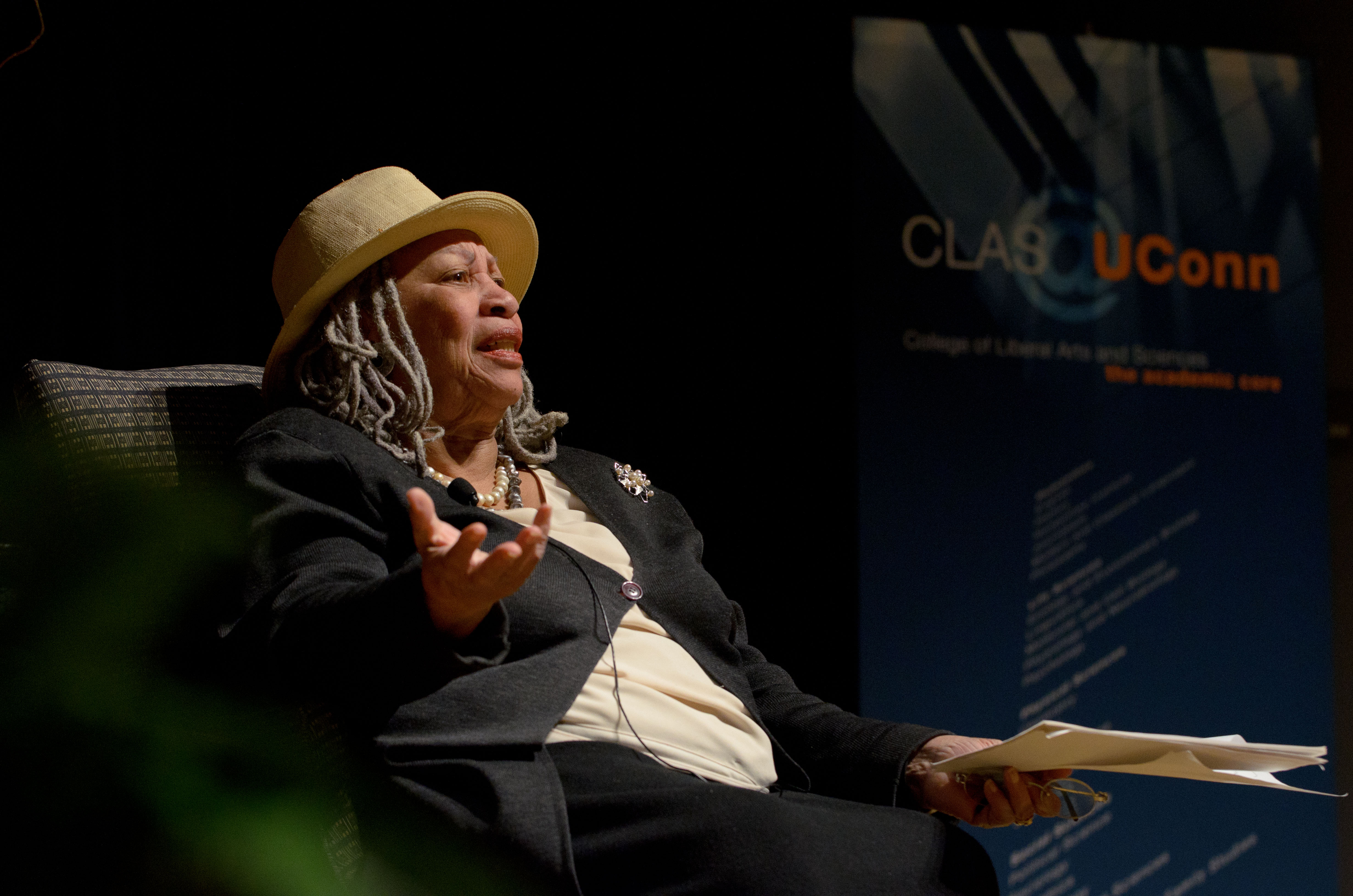Editor’s Note: In remembrance of Toni Morrison, the 1993 Nobel laureate in literature, who died on Aug. 5, 2019, at the age of 88. Morrison spoke to the UConn community during a visit to campus in 2011. This is the story about that event.
Acclaimed author Toni Morrison was greeted with a standing ovation as she prepared to deliver the keynote address at the Humanities Institute’s 10th anniversary celebration on April 8.
Morrison is the Robert F. Goheen Professor Emerita in the Council of the Humanities at Princeton University. She has written numerous non-fiction books, as well as essays and children’s literature, but she is best known for her richly detailed novels that typically explore the African-American experience from a feminine perspective.
A Nobel laureate, and winner of the Pulitzer prize, the National Book Critics Award, and the Library of Congress Bicentennial Living Legend Award, among other honors, she emphasizes that she is not a feminist writer but rather one who chronicles the historically accurate experiences of her characters who happen to be female.
“People ask me why I write about the past,” she said, “and the implication is that I am ignoring the present … and I do write about the past … but [for instance] when I wrote Sula, which took place in the early 1900s, I was keenly aware of the current state of feminist discourse.”
“Freezing history in amber is dangerous,” she said, “and what has happened in the past and what is happening now are part of an arc towards the future. It’s virtually impossible to understand or to shape the present without some knowledge of what has come before.”

Morrison said her books are about values. We are living in a world where the pride of profit often drives public policy, she said, and this is narrowing the concept of citizenship.
“I remember being a girl and being called a citizen and this was important,” she reflected. “Sure I was a second-class citizen, but I was still a citizen.
“After World War II,” she continued, “we were called American consumers not American citizens, and we are now called [American] taxpayers. This means our relationship with our country now is not the same as it used to be when being a good citizen was something important.”
In her novel Tar Baby, Morrison wrote about capitalism and the ramifications it has had upon African Americans. The picture she painted of capitalism is problematic. She spoke of the “seductive costumes of globalism,” noting that “in today’s world, corporations are selling democracy as if it is toothpaste.” The danger is that too many global corporations have no national interest, no loyalties, and are not committed to public service. She said she is becoming alarmed by the separation of wealth and power from ordinary citizens, and fears that attempts to “privatize everything” are making the problem worse.
She also cautioned against religious extremism, saying, “In certain quarters, truth doesn’t matter. Knowledge is less powerful than belief; knowledge has always been suspect in certain quarters, and this is why scholars and human rights organizations are fighting every day to rescue the dispossessed from the violence that is swallowing them.”
Responding to an audience member who asked if she had any words of wisdom to share with young women, Morrison responded that at some time in our lives we all experience a moment when, “you become the person you are” and that your age “when you become you” is irrelevant.
Morrison, who is 80 and working on her memoir, said she becomes “depressed and sad” if she doesn’t have a project to think about. She challenged the audience to make choices that will ensure our future; to tell the truth, to raise the bar, and “to imagine a world that is truly worthy of life.”



